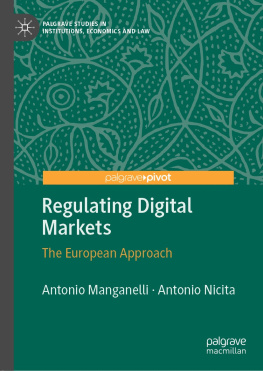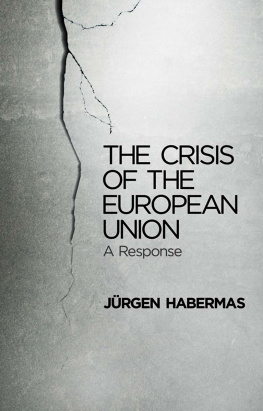The disruptive transformation of the public through digitization has led to monopolizing structures on the Internet that make Europe dependent both at an infrastructural level and politically on non-European private and state players. At the same time, these structures undermine our democratic order. To date, the European political response has centered mainly on regulatory action. Such measures, however, are insufficient for the (re-)construction of a European digital public. This book shows how the current crisis could boost our chances of breaking new ground by establishing an independent European Digital Public Space. The contributors are academics, actors from public and non-commercial media, and long-time activists in the field of the Commons. Accordingly, they shed light on the topic from different perspectives.
This book project was realized with financial support from the city of Linz, with funds from the LinzEXPOrt program and with additional financial support from Radio Orange in Vienna and the Austrian Cultural Broadcasting Archive (CBA).
Note about the network graphic used on the cover:
The cover illustrates the first steps in mapping individuals, initiatives, organizations and projects that think, develop and foster new ways of managing European digital media and infrastructures. If you want more details, please visit https://european-network.epics.fyi. There you will also find information on how you can add further data to this project. All information shown was collected via public consultation about these initiatives or during the Public Spaces Conference in March 2021. Michael-Bernhard Zita is collecting and analysing this data as part of his dissertation project and will be glad to receive any additional information.
Building a European Digital Public Space
Strategies for taking back control from Big Tech platforms
Edited by Alexander Baratsits
Published by iRights.Media, Philipp Otto
iRights.Lab GmbH
Schtzenstrae 8
D-10117 Berlin
www.irights-lab.de
www.irights-media.de
Contact email:
Web: www.irights-lab.de
Twitter: @iRightsLab
Instagram: irights.lab
Layout and design by Josef Bacher
Copy editing by iRights.Lab
Proofreading by iRights.Lab
Printed by CPI books GmbH
eBook-Conversion by CPI books GmbH
ISBN: 978-3-94436-296-0
Licence: All text of this book fall under the Creative Commons Licence CC BY-ND 4.0 DE. That means you are free to: Share copy and redistribute the material in any medium or format for any purpose, even commercially. The licensor cannot revoke these freedoms as long as you follow the license terms.
Under the following terms:
Attribution You must give appropriate credit, provide a link to the license, and indicate if changes were made. You may do so in any reasonable manner, but not in any way that suggests the licensor endorses you or your use.
NoDerivatives If you remix, transform, or build upon the material, you may not distribute the modified material.
No additional restrictions You may not apply legal terms or technological measures that legally restrict others from doing anything the license permits.
iRights.Media is the publisher of think tank iRights.Lab. We make books, magazines, e-books and online offers for net-savvy readers and everyone who is interested in the subject of the Internet and society.
The independent think tank iRights.Lab develops strategies and practical solutions to shape the rapid changes in an increasingly digitalised world to the benefit of our society. iRights.Lab supports public institutions, foundations, companies, academia and politics with legal, technical, economic, socio-political and socio-scientific expertise in mastering the challenges of digitization and effectively exploiting its potential.
Contents
Preface
Alexander Baratsits
Platforms, Infrastructures and Public Value
Jan-Hendrik Passoth
Civil Society as Litmus Test for Democratic Governance
Alexander Baratsits
European Cultural Backbone 2.0
Alexander Baratsits and Franz Heinzmann
Challenging the Winner-Takes-All data economy: the case for public digital infrastructure
Katja Bego
Building a Sustainable European Cloud: A manifesto
Max Schulze
Digital Public Space: A missing policy frame for shaping Europes digital future
Alek Tarkowski and Paul Keller
The Independence and Sustainability of Journalism
Mira Milosevic
Must-carry Obligations on Social Media: A fundamental rights perspective
Gabrielle Guillemin and Maria Luisa Stasi
Back to the Future?
Anna Mazgal
Digital Best Practices to Enhance Public Values
Geert-Jan Bogaerts
Towards an Infrastructure for a Democratic Digital Public Sphere
Volker Grassmuck
Creative Commons as a Public Service Task
Leonhard Dobusch
Occupy the Internet: Why we need a Public Service Internet
Klaus Unterberger and Christian Fuchs
Public Service Media and Media Change
Barbara Thomass
Thinking about the Digital Public Sphere
Bill Thompson
Nonprofit Technology Development for Free Community Media in Austria
Ulli Weish and David Trattnig
Free, anonymous, no cost: What will happen to free frequencies?
Sabine Fratzke
Go With the Times or the Times Will Go Without You
Ingo Leindecker and Michael Nicolai
Preface
Digitalization has profoundly changed the existing order of the public sphere in Europe. With the emergence of market-dominating, privately organized social media platforms situated, above all, in the US and China two major developments can be seen: namely, a shift from the use of traditional media, such as print and radio broadcasting, to online platforms, and a corresponding, dramatic plunge in traditional media advertising with large parts of the print sector, in particular, already struggling for survival. This domination by Big Tech means that public media creators commercial as well as non-commercial can no longer avoid using the Big Tech platforms. And by furnishing their own content free of charge, they contribute to the success of those platforms.
Meanwhile, the Covid pandemic, accelerating digital transformation, has only exacerbated the situation. In 2020, for example, there was a 30-80 percent drop in traditional media advertising revenues. But its not just a disruptive change for the industry that makes this media crisis so dramatic for society, but that media and communication play such a central role our democracies.
Urgent action is now therefore needed to counter the hegemony of privately organized Big Tech platforms with a European Digital Public Space a concept that has been in discussion since 2017/2018. The core idea is to build as an alternative to Big Tech companies in the US and China a European infrastructure. Similar to public service broadcasting, envisioned is a sovereign, democratically organized structure only not restricted to a national level, but decentralized: A European network based on European values.















